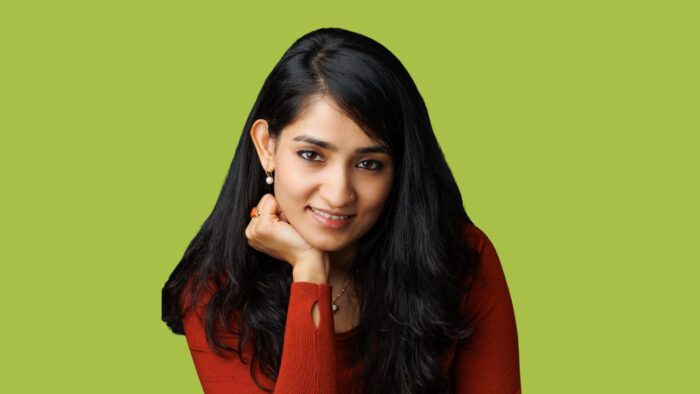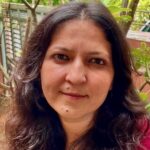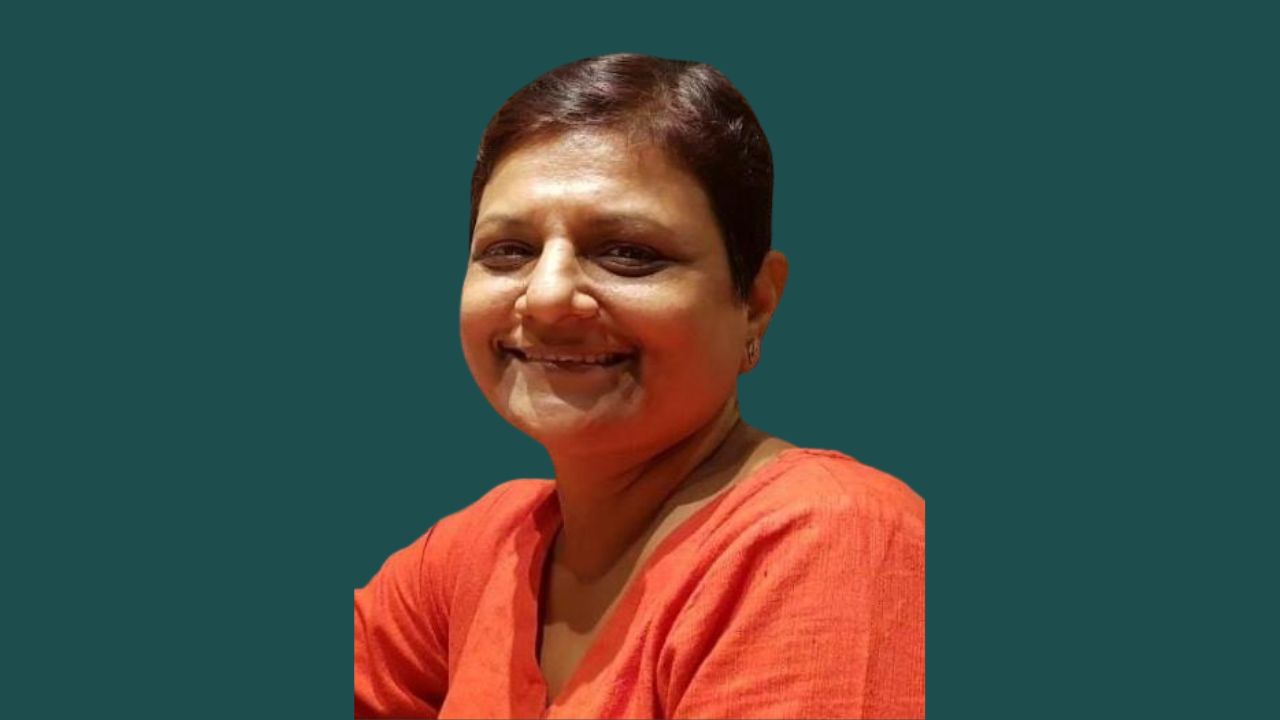Nidhi Pandya is a third-generation Ayurvedic Practitioner and carries generational Ayurvedic wisdom from her grandfather, an Ayurvedic healer from India. She has classical Ayurveda training from the scriptures, she is a TEDx speaker, teacher and writer. Her work was featured in Vogue, Harper's Bazaar, the Times of India, and she is the creator of The Inner Climate™, a revolutionary approach to wellness. Nidhi is currently working on two books and lives in NYC. We caught up with her to find out what it was like growing up in an Ayurvedic family and how it shaped her life and work.
Sophia: Tell us about your childhood and what it was like growing up in a home with vaidyas?
Nidhi: I grew up in Mumbai in a household of 14 people, and my grandfather was an Ayurvedic practitioner and healer. My father got into Ayurveda much later when he founded an Ayurvedic Cancer Research Institute called Rasayu Clinic in Pune. We were raised Ayurvedically and it was a liberating experience. People would imagine that in a household where Ayurveda is so prevalent, we would have rules and rigidity, but the opposite was true. I learned health as a very gentle, loving value system, one that brought freedom that comes from being well rather than the fear of disease. We were taught Ayurveda through loving practices that everybody in the family followed. There is power in numbers. When everybody is doing something, it doesn't feel like a chore. So we had heavier lunches, lighter dinners, yoghurt was not consumed at night, we never had processed bread or cheese. Because it was done collectively, it just felt really easy and we felt good. The other thing that really supported me growing up was that my grandfather used terminology that made us aware of our own body's tendencies. For example, he would say, “Ruchi is more prone to heat or Shubha (my sister) is more prone to getting a phlegm.” So we were always encouraged to tune into our own bodies and see the properties of our symptoms. In Ayurveda, we call it the gunas. So it made us self-aware at a physical level and at a psychological level. We are a family of self-aware people and I find that very unique.
This is also what made it possible for 14 members in a joint family to live in harmony under one roof. I often say that my family of 14 people was my research laboratory. I became obsessed with identifying patterns and seeing how we all respond differently to the same stimulus. So it was a hugely beneficial place.
Sophia: Tell us about the inner climate method that you developed?
Nidhi: People often get lost in the jargon of doshas. The inner climate is a proprietary method of wellness that I have worked on using the concept of doshas, but also going deeper into our bodies. Let me explain it a little bit further. Kapha is too cold, right? It's too cold. The antidote to kapha, for example, is warming kapha. But if you warm kapha too much, then it can become pitta. So you cannot take it to a hot place or you'll have another imbalance. Kapha is also humid. If you remove that humidity from kapha to balance it, you can't go to extreme dryness because that would take you to vata. So you have to stop at a place that is moist. You come to a place of warm and moist, and that's how kapha gets balanced.
So basically, whenever we seek to balance doshas, the point at which we stop is the point of equilibrium, the point of homeostasis is warm and moist. That is the inner climate of our body where all doshas are balanced. We are warm-blooded beings. Just exhale onto your palm and sense that. What you exhale on your palm is warm and moist. Our blood is warm and moist. Our reproductive fluids are warm and moist. Our urine is warm and moist. Mother's milk is warm and moist. Everything in our body is warm and moist. Even the probiotic environment exists only in warm and moist places. Our agni is warm and moist. The agni has a liquid kapha component to it. It's not dry. If it was dry, it would burn out. So my inner climate method teaches people what this climate is. I've noticed that if people can naturally adopt a warm and moist lifestyle, they don't get sick. Sicknesses go away in three weeks. They're sleeping better, their skin is better and their hormones feel better. So Ayurveda is the science of life. To call it even medicine would be taking away 80 percent of Ayurveda.
Sophia: As you rightfully pointed out on your website, Ayurveda is so much more than a concoction of herbs. Elaborate on that…
Nidhi: Ayurveda encompasses everything from prevention to treatment, to geriatrics, to paediatrics, to toxicology, to even sections of social and sexual conduct. If it has to do with human life, then it can be found in Ayurveda.
Sophia: Can you give us examples of how an Ayurvedic lifestyle and diet has helped some of your students transform their inner and outer climate?
Nidhi: I had some students transform their inner and outer climate just by eating right. So firstly, we recommend eating according to the clock of the sun. We are diurnal mammals. When people start eating with this warm and moist prescription, that's all they have to do in the beginning, Start eating warmer foods, freshly cooked foods, spiced food that brings in the warmth. Moist comes with good fats and just making moist choices, which means, for example, choosing a zucchini or a loki over something that's really dry. So when people start eating like this the first thing that happens is that they have better bowel movements, which is remarkable for some people who've been constipated their whole life. Women will have regular periods, better sleep. But the other thing that happens as you start tuning in to these little properties is that you actually become more self-aware and you transcend beyond the body and reach a higher place.
Sophia: Who are some of your life’s biggest spiritual inspirations?
Nidhi: I don't follow just one guru, but I would say my grandfather. I think the one person that I think about every day of my life is my grandfather. Not only was he an Ayurvedic vaidya, he actually lived his life in equilibrium and compassion and his presence was healing because it was non -imposing. He worked and volunteered with patients till he was in his 90s. He taught what the word spiritual means. You can't be rigid. Rigid is dense. Spirit is light. Rigidity is closer to matter. Spirit is etheric. So he was lighthearted and accepting of everything. I don't think I have found a bigger spiritual inspiration. I do go back to the Vedas constantly. Another inspiration is Guruji Yogi Shiva.
Sophia: How has an Ayurvedic lifestyle affected you on a personal level?
Nidhi: It has made me a much more self-aware person. It has allowed me to infuse this knowledge into my children by just living like that. I think one person who lives Ayurvedically can actually shift a family. I think a family can shift a community and a community can then collectively influence the world. It's a beautiful science. You know, I can eat almost everything. The only thing I don't eat is processed, stale and extremely cold foods. But I will eat a pizza, I will have my bag of chips... It teaches you that if you want to indulge, do so but balance your indulgences so you actually live better. You actually enjoy the world even more rather than less.
Sophia: What is it like practising and teaching Ayurveda in the West which is so focused on allopathy?
Nidhi: It is actually a wonderful experience because the West is so focused on allopathy. There are so many helpless and lost people who've tried and tested the system and they've been frustrated with being in this box. So people are a lot more open and a lot more receptive. People want a solution, an alternative solution, because mainstream allopathy has not worked for them. Everybody's treated the same way. So to have a customised, loving approach is received tremendously well.
Sophia: Any advice for young students and practitioners of Ayurveda who want to turn their practice into a career?
Nidhi: Ayurveda chooses its agents to keep the knowledge flowing. You just have to be open and let it flow. I know that's what happened to me and I see that happen to others. It's a path of great trust and gratitude.
For further information visit https://nidhipandya.com/





